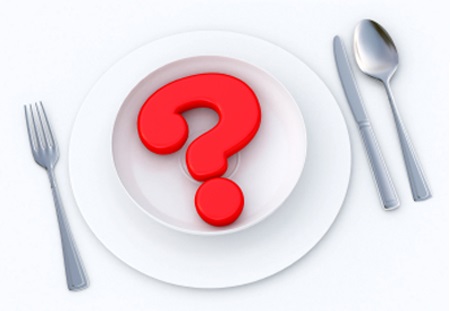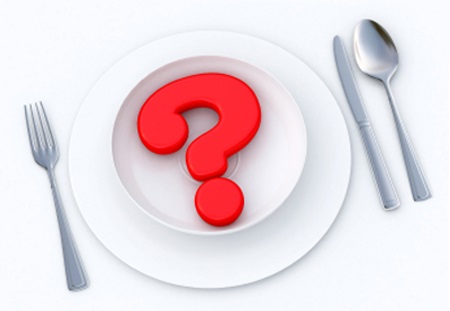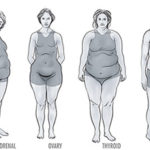
When it comes to healthy diet recommendations, most of us expect to hear what to eat and in what amounts in order to maintain their weight and well-being.
However, the most popular eating strategies in 2013 were based on a completely opposite concept, promoting the idea that in order to improve your health, you should avoid certain products. So instead of telling us what to include in our menus, these diets encourage us to exclude specific foods or groups of foods from our plates.
Any diet that involves the removal of certain products from one’s menu can be classified as an elimination diet, although in their original form, exclusion or elimination regimens were created for people with certain food intolerances, allergies or food-induced conditions.

Symptoms like fatigue, inflammation, bloating and digestive discomfort, cramps, bowel changes, skin outbreaks and rashes, joint pain, insomnia, headaches, brain fog, or respiratory issues can be caused by food intolerances, so in order to achieve relief from gastrointestinal upset, irritable bowel syndrome, and other such conditions, one can be prescribed an elimination diet.
These regimens involve the removal of some or all of the potential triggers from one’s menu for a limited period of time, in order to observe the changes in one health state. Once switching to an exclusion diet, the patient can no longer eat gluten and grain products, soy, dairy, nuts, eggs, strawberries, and other foods that can be responsible for allergic reactions or digestive issues.
These foods have to be eliminated progressively, starting with the products that are most likely to be responsible for the sufferer’s poor health. But how are these foods identified? The easiest way to guess which products cause the disturbing symptoms is to observe how your body reacts after eating them. If you get bloated, feel tired, moody, and unable to focus after eating a large grain-based meal, then it’s likely for gluten to be responsible for your digestive problems.
Some of the foods generally labeled as healthy can also be the culprits behind your altered health: lentils and beans, citrus fruits, corn, beef, pork, chicken, and coffee can cause digestive discomfort and contribute to the previously mentioned symptoms.
There are generally two approaches to elimination diets: your physician might recommend removing these foods progressively or eliminating all the potential triggers from the beginning and then reintroducing the foods one by one in your menu. Again, it’s necessary to observe how your body reacts after eliminating or adding a product back to your diet.
While there’s no doubt that exclusion diets are efficient and necessary in people dealing with certain conditions, it’s also true that these regimens are fairly restrictive, and they should be followed only if recommended by a medical professional.
Cutting out foods from your menu in an arbitrary manner is not recommended, due to the risk of developing nutritional deficiencies. Surely, we’re not talking about junk foods, or sugar and sweets rich in sugar, but about products that are healthy, rich in nutrients and beneficial for your organism.
Quitting grains because you’re gluten-intolerant is the right thing to do, but removing all grains from your diet in order to lose weight may not be the best solution, if you replace these products with “gluten-free” commercial foods and chemical-rich food substitutes.
If you feel better without gluten or dairy, and your menu is well-balanced and rich in all the needed nutrients, vitamins and minerals, then there’s nothing to worry about, but if you become vegetarian just for the sake of it, and replace the sources of animal protein with protein powders that are loaded with chemicals and artificial ingredients, you’re not doing your body any favor.

Keep in mind that once you remove a certain ingredient from your diet, your body may become more sensitive to that specific compound. If you go gluten-free for example, and follow a GF regimen for a long period of time, the next time you’ll eat something containing gluten you might experience even more intense symptoms than before giving up gluten.
Same applies to dairy and other products containing lactose, sugar, and soy, so you shouldn’t be surprised if you develop lactose intolerance or experience unpleasant symptoms when eating soy-based products.
This may not seem like a serious problem, but it is, because it limits your food choices even more, and you might end up avoiding a very large number of foods. Moreover, it can affect your social life, as finding dishes that are free of all potential allergens when eating at a restaurant or a friend’s house can be tricky.
The key is to always put first the nutritional value of foods, and think about the potential drawbacks before eliminating a product from your menu. If you decide to switch to an elimination diet, make sure to keep your menu as varied as possible and to include in your meals whole foods that can provide enough macro and micronutrients.

Updated on: 08.09.2021 The lymphatic system is involved not only...

Stress can make you gain weight – we’ve heard this...

Various theories exist to answer this question. As you will...

Both rebounding and jumping on a trampoline are excellent ways...

Our series of whole body vibration machine exercise articles continues...